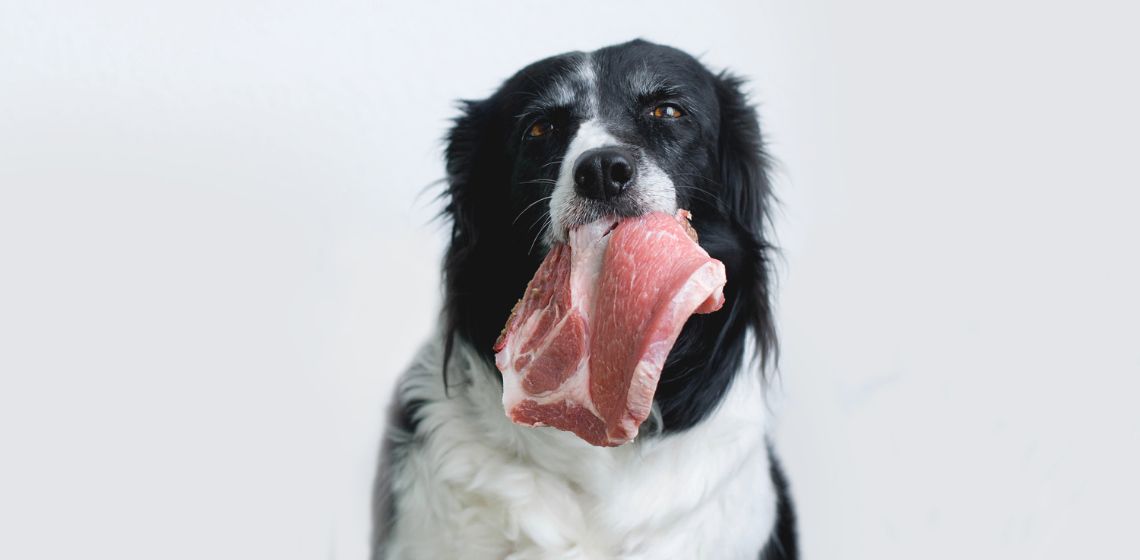Table of Contents
Many of the symptoms of Salmonella infection in dogs are the same as in humans (vomiting and diarrhea), but some dogs can have more severe symptoms, while others may be completely asymptomatic. Treatment for Salmonellosis depends on the severity of your dog’s symptoms.
Understanding the signs of Salmonella infection in dogs and how to prevent it is particularly important because it is a zoonotic disease, meaning it can be transmitted to humans.
Symptoms of Salmonella infection in dogs
Symptoms of Salmonellosis in dogs are similar to food poisoning in humans. Salmonella usually causes illness in dogs by releasing a toxin into the gut that causes inflammation. This inflammation disrupts the intestines’ ability to absorb and retain nutrients and water, leading to:
Vomiting
Diarrhea that may contain blood or mucus
Dehydration
Weakness and lethargy
Decreased appetite
Abdominal pain
Other, less common symptoms of Salmonellosis include:
Septicemia- presence of bacteria in the bloodstream causing severe illness
Fever
Weight loss
Miscarriage/abortion in pregnant animals
Dogs as “carriers” of the Salmonella bacteria (asymptomatic)
Salmonella bacteria can clearly make dogs sick. However, most dogs with Salmonella bacteria in their gut do not actually become symptomatic. These dogs are called “carriers” and may appear perfectly healthy. Carriers can shed the Salmonella bacteria in their feces intermittently, making them one of the ways that humans, other dogs, and many other animals can contract Salmonella infection. Carriers also make diagnosing Salmonella infection more difficult.
Diagnosing Salmonella infections in dogs
A fecal sample from your dog is needed to diagnose Salmonella as the cause of illness. Your veterinarian can run several tests on the sample, including fecal culture and PCR, to look for the Salmonella bacteria. Because there are asymptomatic carriers of Salmonella, presence of the bacteria in a fecal sample does not always mean it is the cause of your dog’s vomiting or diarrhea.
Your veterinarian will use a combination of the following to diagnose a Salmonella infection:
History regarding your dog’s onset of illness and symptoms
Physical examination findings
Your dog’s lifestyle (Do they live on a farm? Did they recently get into the garbage?)
Age and complete medical history of your pet – including other illnesses
Fecal sample results
Additional diagnostics, such as blood work and x-rays
Remember: Collecting a fecal sample from your dog anytime they start having loose stool is almost always a good place to start in diagnosing the cause of diarrhea. Make sure to wash your hands and use gloves and/or a bag anytime you collect a fecal sample from your dog.
How to Treat Salmonella in Dogs?
Salmonella in dogs is treatable. When infected dogs become symptomatic, treatment depends on the severity of your dog’s symptoms. Many cases of Salmonella in dogs can be treated on an outpatient basis. Less commonly, your pet may require hospitalization if they are severely dehydrated.
Your veterinarian may perform or recommend the following treatments:
Fluids – administered either through an IV or under the skin
Anti-nausea medication- available as a tablet or injection at the veterinary hospital
Feeding a bland diet such as cooked chicken with rice or a prescription veterinary diet (Hills I/d, Purina EN, Royal Canin Gastrointestinal) in smaller amounts more frequently throughout the day
Probiotics
Antibiotics- most cases of Salmonella infection in dogs do not require antibiotics, but your veterinarian may recommend them depending on your dog’s specific case
Treatment is not typically recommended for dogs who are asymptomatic but positive for Salmonella in their feces due to the risk of creating antibiotic-resistant bacteria. However, if your dog has regular contact with immunocompromised humans or animals, then discuss this with your veterinarian.
Causes of Salmonella in Dogs
Salmonella bacteria are found in many places, and completely eliminating exposure to it is not possible, but understanding how to reduce your dog’s exposure to Salmonella is the best way to limit the chance of illness. Thinking about how humans get food poisoning is a helpful tool for understanding how maybe dogs get Salmonella.
Risk factors for developing Salmonella infection in dogs include:
Age- puppies and geriatric patients are at higher risk due to immature or weakened immune systems
Other underlying illnesses- diseases such as cancer or an autoimmune disease increase susceptibility to infection
Environment- overcrowded places, such as animal shelters, or regular exposure to farm animals can increase the likelihood of Salmonella contamination.
Raw Diets- recent studies have found raw diets are linked to a higher risk of Salmonella infection, increasing the chance of illness in dogs and leading to a greater number of animals shedding the bacteria in their feces. If you are feeding your dog a raw diet, please discuss the risks and benefits of this with your vet.
Is Salmonella contagious?
Whether or not they are symptomatic, dogs with Salmonella infection can spread it to other dogs, cats, humans, and many other animals. Salmonella is primarily spread through feces, so using good hygiene practices after contact with animals and their bedding and toys can help prevent the spread of disease.
To help prevent Salmonella infections in humans, the CDC advises washing your hands after “touching animals, their pet food or treats, items in their environments, and their poop.” Good hygiene is particularly important for immunocompromised people, including the elderly and infants.
Understanding the signs of Salmonella infection in dogs and how to decrease exposure to this bacteria ultimately help improve the health of both animals and people.
The most common symptoms of Salmonella in dogs are vomiting and diarrhea. Some dogs may have additional or more severe symptoms, but some dogs can be completely asymptomatic.
Salmonella infection is rarely life-threatening in dogs. An outpatient visit to your veterinarian is usually all that is needed for treatment, especially if caught early.
Treatment depends on the severity of your dog’s symptoms. The most common treatments for minor cases include feeding a bland diet and probiotics.

Ellen Russell, DVM, is a graduate of the Virginia-Maryland College of Veterinary Medicine and a practicing small animal veterinarian. She particularly enjoys geriatric animal care, feline medicine and veterinary public health.








